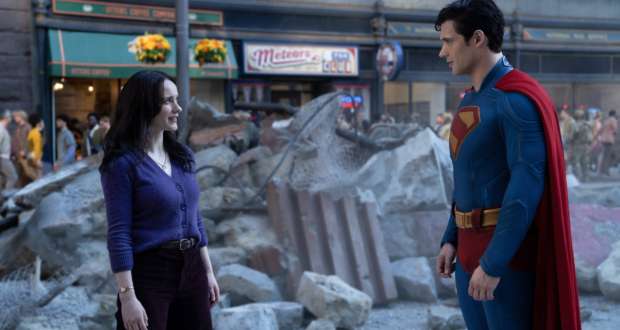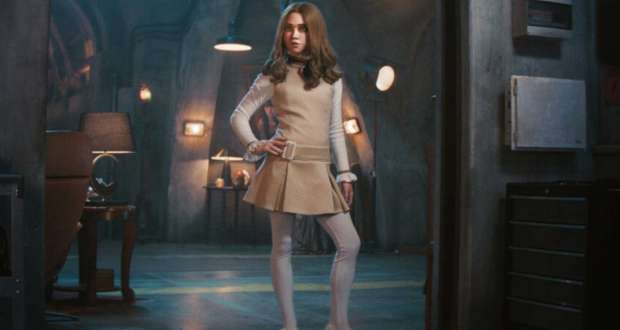Sometimes I Think About Dying is an introspective exploration into the quiet recesses of loneliness and the unexpected, fragile connections that bring color into a monochromatic life. Directed by Rachel Lambert, the film is a thoughtful adaptation of the 2013 play Killers by Kevin Armento and draws inspiration from a similarly titled 2019 short film co-written and directed by Stefanie Abel Horowitz. This romantic comedy-drama, crafted with a unique blend of poignant melancholy and subtle humor, strikes a delicate balance that aims to capture the essence of human isolation and the understated power of companionship. Daisy Ridley stars as Fran, embodying the character’s introverted nature with a performance that radiates depth and vulnerability, albeit inconsistently across the film’s duration.
The premise of the film is quietly compelling, with Fran leading a life marked by an overwhelming sense of solitude and a peculiar preoccupation with thoughts of death. Ridley’s portrayal of Fran’s interior world is nuanced, drawing viewers into her solitary existence with an earnestness that feels both profound and relatable. However, where the film falters is in its pacing and occasional predictability, treading familiar ground without offering substantial new insight into the theme of loneliness in the modern world.
The arrival of Robert played with a gentle awkwardness by Dave Merheje, serves as the catalyst for the narrative’s exploration of human connection. The chemistry between Ridley and Merheje is notable, although their interactions at times feel constrained by a script that struggles to fully flesh out their characters beyond the surface level. Despite this, there are moments of genuine warmth and tenderness between Fran and Robert that highlight the potential for deep connection even amongst the most isolated of souls.
Supporting performances by Parvesh Cheena, Meg Stalter, and Brittany O’Grady add vibrancy to the film. They offer a counterbalance to Fran’s introspection. Cheena’s Garrett and Stalter’s Isobel, in particular, bring a necessary levity to the narrative. O’Grady’s Sophie offers a nuanced reflection on the various ways people navigate their insecurities and desires for intimacy.
The film’s cinematography and use of visual metaphors deserve commendation. Scenes are often bathed in a muted palette, reflecting Fran’s internal state. On the other hand, bursts of color signify moments of emotional awakening. These visual choices enhance the narrative, creating a sensory representation of Fran’s journey that resonates on a visceral level.
However, the screenplay, penned by Kevin Armento, Stefanie Abel Horowitz, and Katy Wright-Mead, occasionally meanders. It leaves some emotional beats feeling unearned. The dialogue aims for authenticity, capturing the awkwardness of real-life interactions. But at times veers into territory that feels slightly contrived. Despite this, the script succeeds in delivering moments of poignant reflection on the nature of existence. It threads dark humor throughout in a way that feels both refreshing and deeply human.
Where Sometimes I Think About Dying shines is in its quieter moments. Scenes where little is said but much is conveyed. Lambert’s direction emphasizes the unspoken, allowing actors to convey depth through gestures and glances. The film’s restraint is commendable, but it sometimes fails to fully engage the viewer.
The film’s exploration of themes such as mortality, the mundane, and the fear of intimacy is ambitious. It explores the protagonist’s psyche, showing her common fears and desires in a personal and universal way. However, the film doesn’t always manage to sustain this delicate balance. It occasionally veers into overly introspective territory that detracts from its emotional impact.
In its essence, Sometimes I Think About Dying is a film about the beauty of life’s small moments. It also shows the significance of human connection. Everyday life has the potential for transformation through small interactions. The film struggles with coherence but is still commendable.
Sometimes I Think About Dying is a film with heart and ambition. Despite its shortcomings, it provides a contemplative look at the lives we lead in quiet desperation. Also, the fleeting moments that can imbue those lives with meaning. Ridley’s performance as Fran anchors the film. She offers a window into the soul of a character whose journey reflects our collective yearning for connection. It may not resonate with all, but for some, it offers a poignant reflection on the human condition.
Sometimes I Think About Dying Review: An Insight Into Quiet Loneliness
-
Acting - 8/10
8/10
-
Cinematography/Visual Effects - 7/10
7/10
-
Plot/Screenplay - 5.5/10
5.5/10
-
Setting/Theme - 5.5/10
5.5/10
-
Watchability - 6.5/10
6.5/10
-
Rewatchability - 5/10
5/10






















